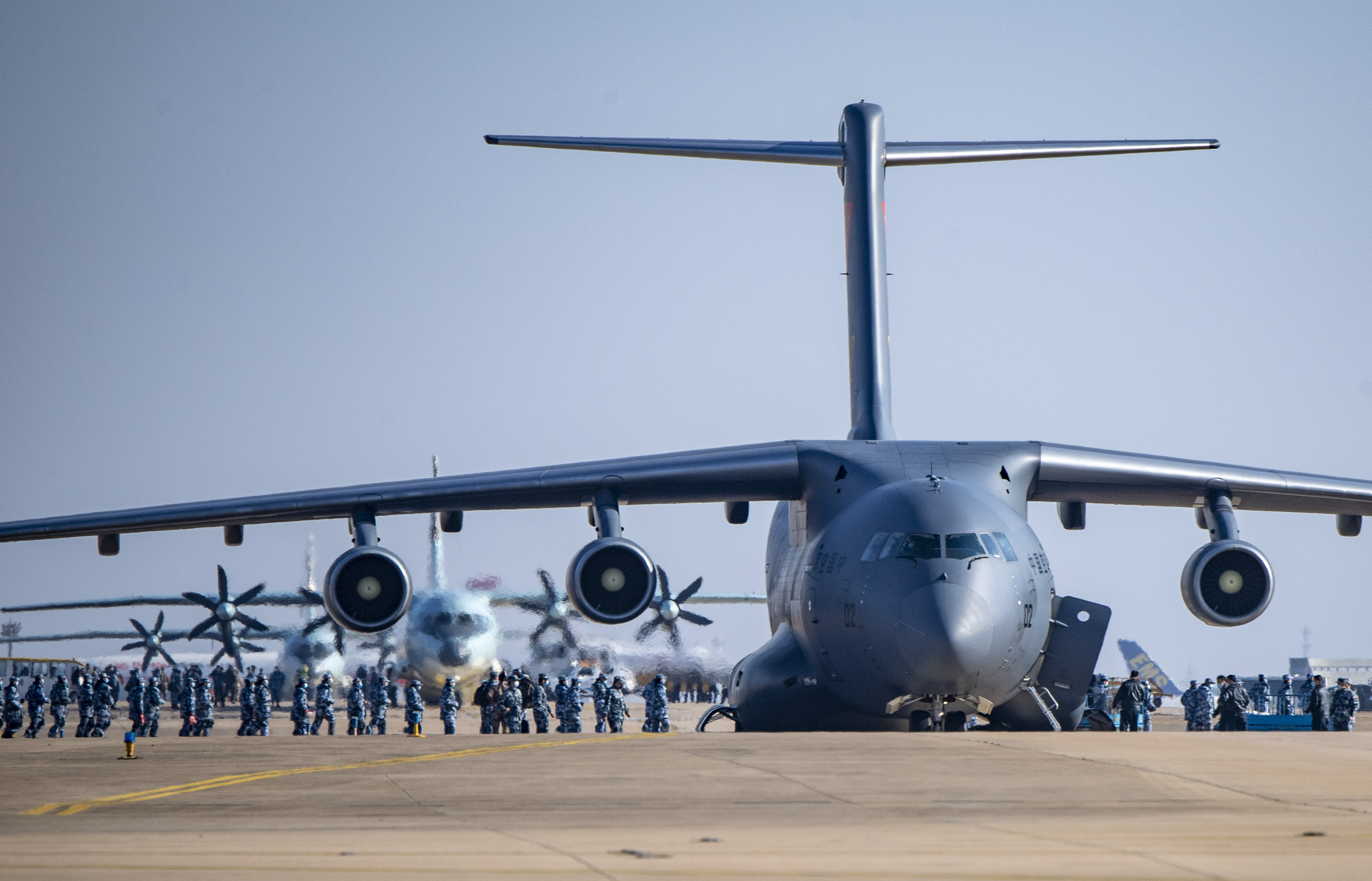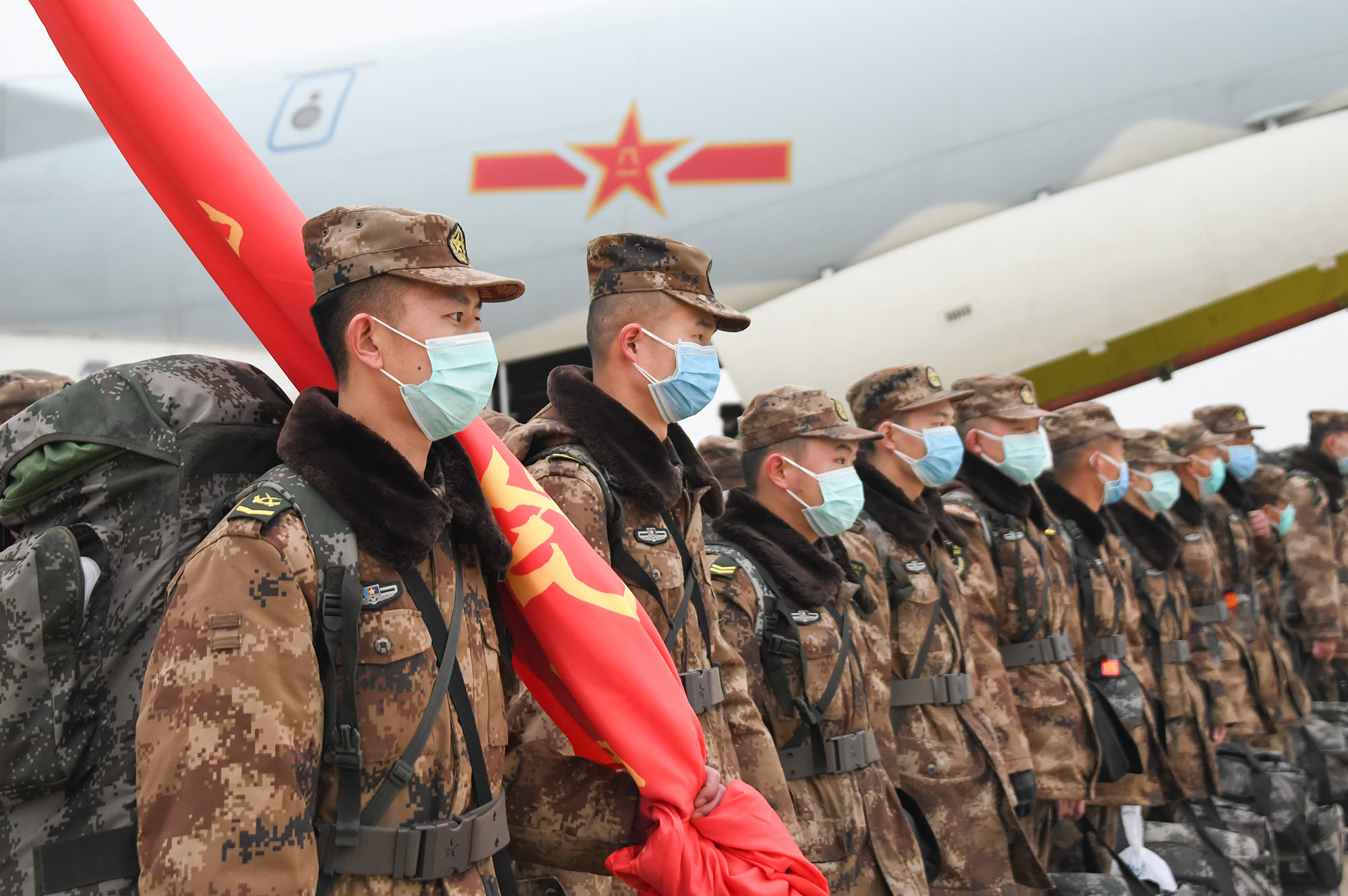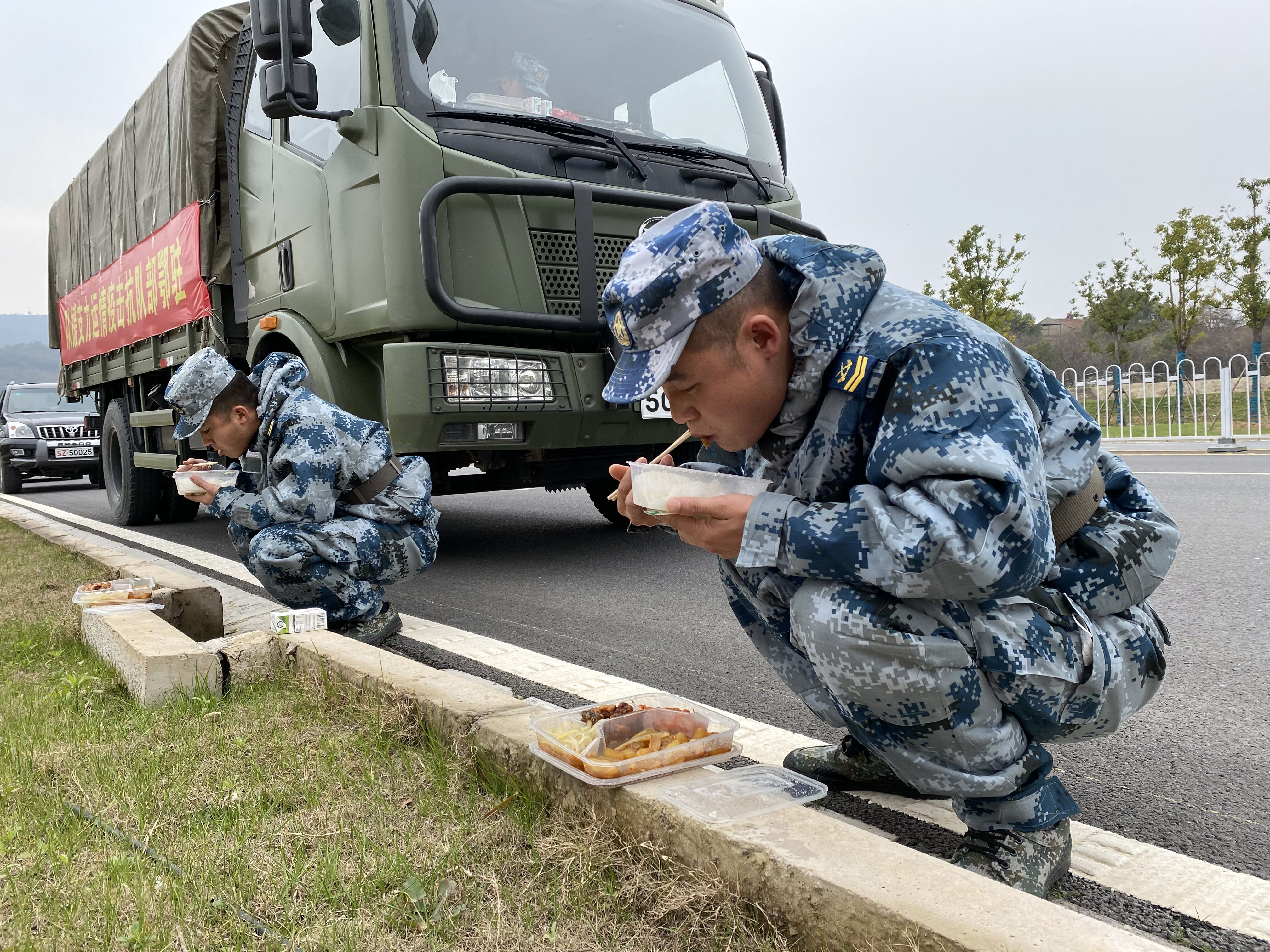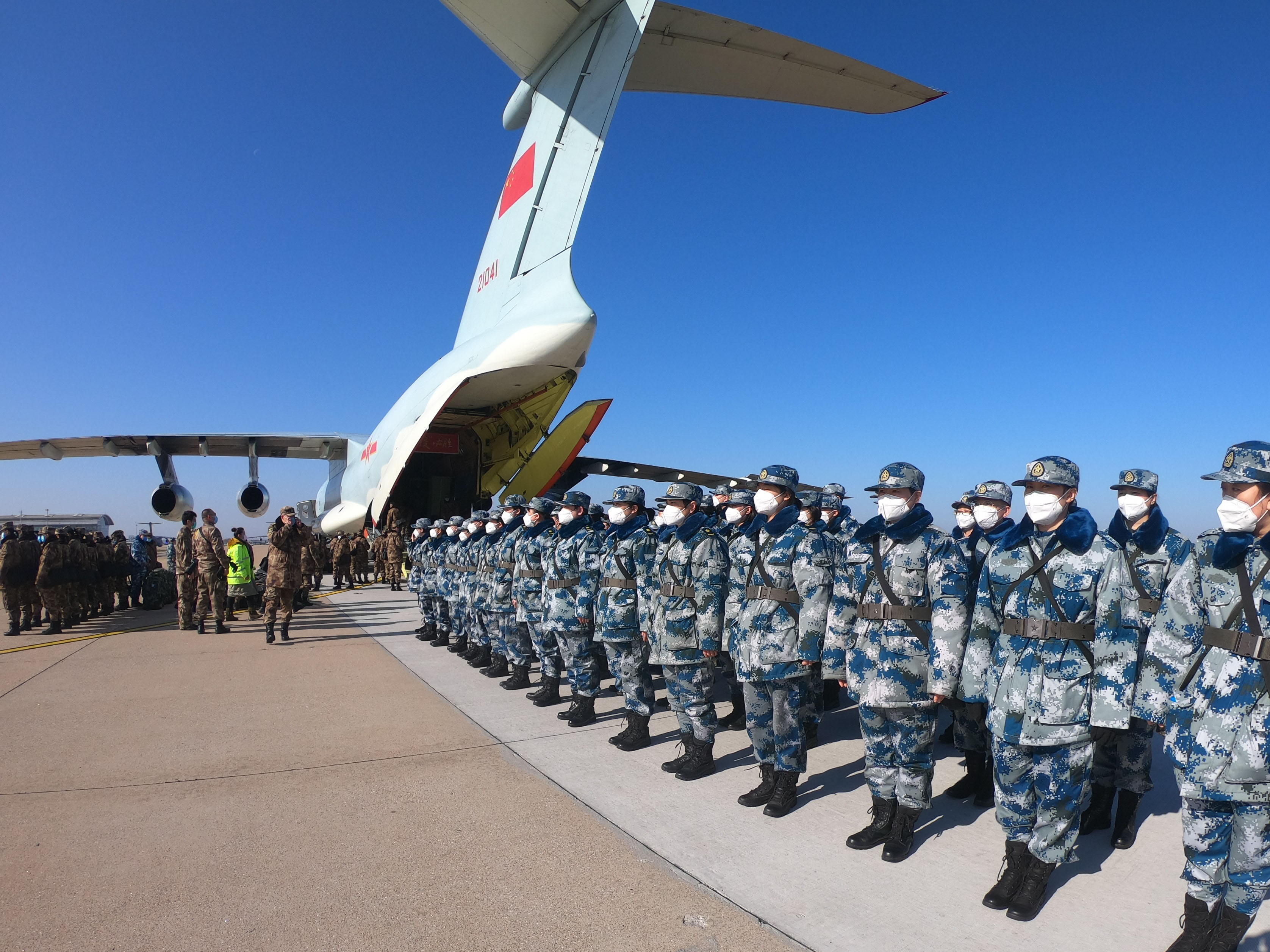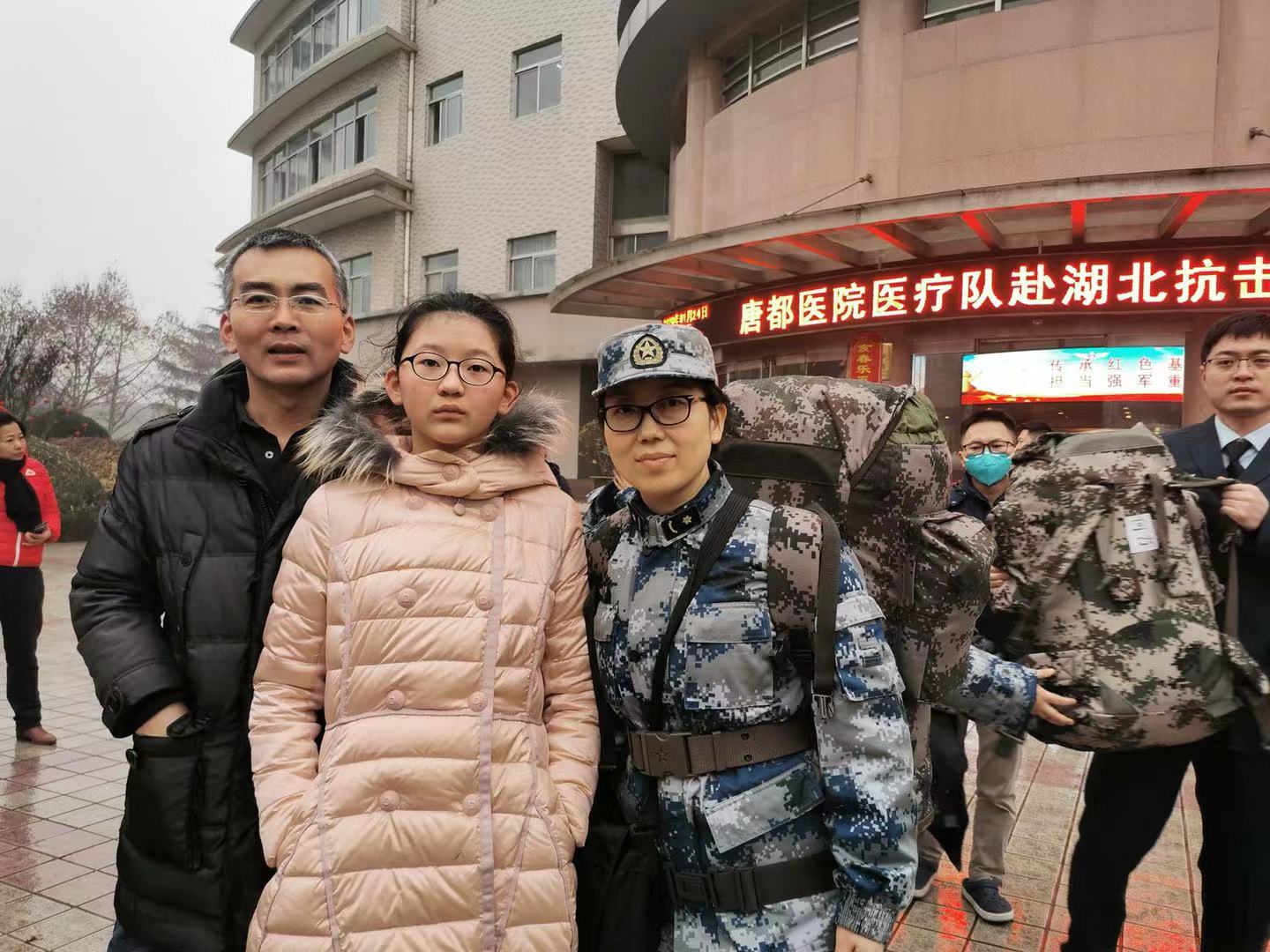Military and Civilians Stand Together in Combating the Epidemic2020.06.22
Since COVID-19 started in China, a total of 231 off-duty officers in the Hubei Provincial Military Region have returned to their positions immediately. 99% of officers at corps, regimental and division level have been on duty at all times; 359 task forces made up of the CPC members are combating against the disease on the frontline; 144 medical personnel have applied to join the battle against this epidemic; Nearly one million servicemen have joined efforts of the epidemic prevention and control in this People’s War against COVID-19. More than 600,000 volunteers in the province offered to work in the local community or village, playing a key part in this battle.
As a Chinese proverb goes, “When people work in solidarity, they can move Mount Tai.” Hubei’s army and local people have fostered great synergy against COVID-19, which helps to ensure people’s livelihood, reassure the people, and maintain social stability.
Active or reserve, soldiers are always in service
During this two-month battle to contain the epidemic, those in military service, both in an active service and a reserve service, were on the front line.
“Nothing can stop me from returning to my position.” said Zhang Dejun, a Political Commissar of the People’s Armed Forces Department of Yuan’an County, who was then on vacation in his hometown. He brought himself with some dry foods, rode a bicycle day and night for 420 kilometers and arrived in the military camp on time. Li Xinghua, Political Commissar of the People’s Armed Forces Department of Jiang’an District, Wuhan, stayed on the front line and did not go back home for more than 2 months, even though his family was just on the opposite side of the river. Under his leadership, more than 300 servicemen in Jiang’an District worked all day long in 16 streets and 52 epidemic prevention and control stations. Among them, some have pregnant wives at home, and some have families diagnosed with coronavirus infection. But no one flinched.
On the evening of February 3, Wuhan launched the construction of “makeshift hospitals” at Hongshan Gymnasium, Wuhan Livingroom, and Wuhan International Convention and Exhibition Center. The Logistics Support Team of the army quickly mobilized 50 vehicles, and servicemen worked to build a “life shelter” overnight. In the preparation of the Wuhan Livingroom Makeshift Hospital, Hu Da and his 200 or more fellow soldiers prepared 2,000 beds one night, together with the community workers, police, volunteers, and veterans.
Zhang Xianjun, Political Commissar of the People’s and Military Department of Zhangwan District, Shiyan, whose 7 relatives were unluckily infected with COVID-19, never withdrew from the front line—In the daytime, he volunteered to work in the Huangming Village. During the night, he was busy reviewing the draft of the “Hubei COVID-19 Battle Express.” Through his efforts, military officers on the front line had access to news of the battle and get inspired.
Wang Jin, company leader of the militia in Suizhou, mobilized all his 6 family members to join the fight against the epidemic, which helped 3000 villagers stay safe.
Yang Jiaqiang, company leader of the militia in Hanyang District of Wuhan, worked continuously at his control station for 3 days in a row, and had to be sent to hospital because of physical exhaustion. Just the second day out of the hospital, he returned to his post. On February 21, Song Qingshan, the instructor of the militia company in Shazhenxi Town, Zigui County, Yichang, sacrificed his life on his way of delivering essential supplies to the front line.
Though some were in their 80s, veterans were still concerned about the people’s safety. Zhang Fuqing, the combat hero awarded the Medal of the Republic, wrote a letter to encourage the soldiers and militia who had been fighting against the epidemic. Tang Guangyou, an “anti-cancer veteran,” donated his last sum of money for the fight against COVID-19 and his body for medical research when he passed away. Yu Kuiyuan, Head of People’s Armed Forces Department in Chengguan Town, Dawu County, Xiaogan, suffered from diabetes and erosive gastritis and had just undergone an operation before the Lunar New Year. Yet he insisted on going to the community and engaged in anti-epidemic work. The 87-year-old retired veteran Lyu Zhongshun inspired the frontline workers by writing the poem “Heroes from Heroic City.”
Volunteers make a difference in Hubei Province
Since COVID-19 struck the province, the Publicity Department of the CPC Hubei Provincial Committee initiated two campaigns to call on volunteer organizations and individuals to participate in the prevention and control of COVID-19 of the province.
In Wuhan alone, the number of applicants quickly stood at over 10,000 in just 10 hours after the recruitment notice was issued—in just a week, more than 70,000 volunteers had registered.
Xiong Meirong, a 78-year-old CPC member in Baiyun Community of Wuhan, joined the volunteer work along with her daughter, son-in-law, and daughter-in-law. Enshi organized 2,485 teams with more than 50,000 volunteers. Huanggang recruited more than 36,000 volunteers. Nearly 40,000 volunteers from more than 30 volunteering organizations in Jingmen have been ready on call.
In just a short time, more than 600,000 volunteers were recruited in Hubei, who were actively involved in communities and villages. They worked on the frontline against COVID-19 and did their parts in quarantine points and delivering logistic supplies.
Younger generations became the major forces of the volunteers. They brought warmth to every family, every village in their home cities, like a beam of light to people in the dark.
Fang Wenquan and his younger son signed up together to take part in the transportation of essential supplies at the Huanggang School of Foreign Languages. The daily task of Zheng Daoyuan in Yidu was to deliver groceries to residents in three villages—Maohutang, Quanfuhe, and Lyvzhuxi. Wang Weijian and his brother Wang Weikang from Tianmen sent 7 ventilators, 50 oximeters, 20 Atomizers, and 35,000 masks to hospitals both in the urban and rural areas. During the anti-epidemic period, they drove more than 3,000 kilometers in their own cars. In the Zhiyin Dongyuan Community, Jianghan Erqiao Street of Wuhan, Sun Wenbo worked with his colleagues to distribute fish to every household, which was donated by Xianning.
“Grandma Li, your groceries… the potatoes, cabbage, and eggs have arrived. I am bringing them to you, please open the door.” In the Dongfang Garden Community of Changyang County, Yichang, due to the difficulties and dangers Grandma Li would face in shopping, the 80-year-old is having her groceries delivered. Liu Faying, who has been granted with the honor of being called “Good Man in China,” delivered the supplies to her door.
“In this cold early spring, your meticulous work has brought warmth to the residents. Your hard work has influenced a group of residents who have also started working as volunteers in our community. Every day they disinfect the building with their own alcohol disinfectant and fight by your side with concrete actions...” This was a thank-you note written on March 23 by Liu Wei, a resident of the Sea View Garden in Yijing Community of Wuhan, which displayed his appreciation and gratitude to the volunteers.
With the improvement of the epidemic situation in the province, the production and life are being resumed in an orderly manner. At present, except those from Wuhan, most local volunteers from the 16 cities and prefectures have shifted their services to poverty alleviation, spring farming, medical return visits, psychological counseling, and helping migrant workers. Their services greatly facilitate the restoration of normal social order and economic recovery.
Translation: Zhao Yan, Special Focus
By Zhang Quan, Wang Jikai, Tian Guosong, He Wutao & Pan Xizi

